Blocked wastewater systems are a perennial challenge for hospitals around the world. To keep these critical systems running, leading healthcare facilities are turning to Sulzer Muffin Monster™ grinders as an effective first line of defense.
Hospital waste management is a complex process involving waste segregation, pumping to respective treatment, incineration, or disposal to an external waste facility. Whilst every care is taken to dispose the right waste to right bin, items such as nappies, wipes, aprons, gloves and even bed linen can make their way into wastewater streams, leading to blocked pumps and pipelines, and disrupting downstream wastewater management operations. The COVID-19 pandemic has confounded these long-term challenges, as facilities deal with higher patient numbers and larger volumes of masks and other personal protective equipment.
One of the most effective ways to stop wastewater blockage problems is with dual shaft grinder technology. Sulzer’s Muffin Monster™ range are the best dual shaft grinders available in the market, generating the high torque required to grind difficult and large solids. They can be installed both inline and in-channel upstream of critical entry points in the wastewater network, where they go to work on unconventional waste, tearing plastic and non-plastic fabrics and crushing solids into small particles that flow freely through the system.
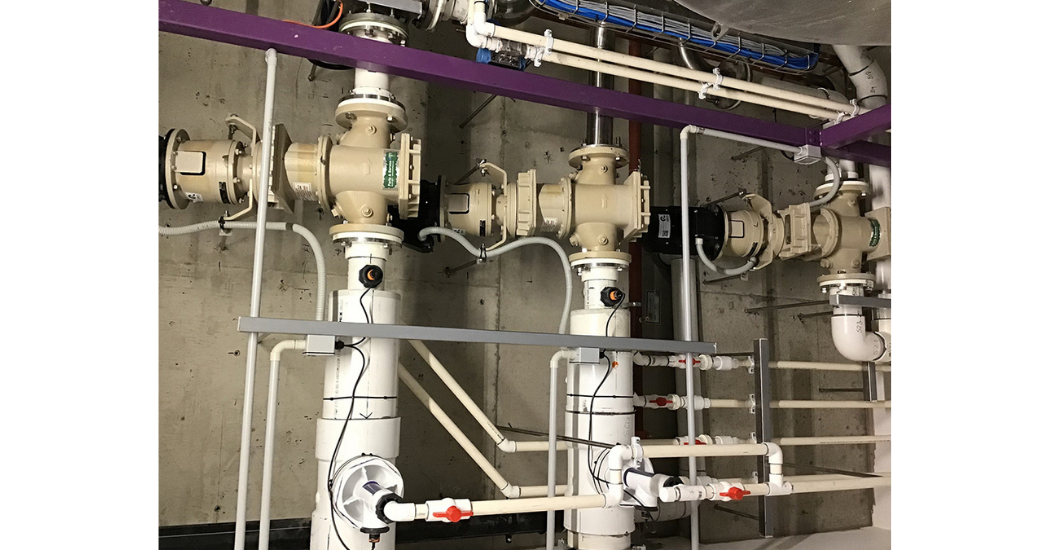
Sulzer supplied three of its 10K Series Muffin Monster Grinders, built to the hospital’s specification.
A proactive approach
When a major hospital near West Sydney, NSW, Australia needed to upgrade the facilities at its infectious disease wards, its engineering team turned to Sulzer for assistance. Like many similar facilities around the world, the wards rely on careful control of air pressure and strict hygiene protocols to prevent the escape of dangerous pathogens. Staff enter and leave the wards through an airlock, where they don or remove personal protective equipment (PPE) and any potentially contaminated equipment is thoroughly cleaned.
The washdown facilities within the airlocks are vital for the safe operation of these wards, but the demands placed upon them are highly variable. When bed occupancy is low, they see relatively little use, but in the event of a major outbreak of infection, they can quickly become very busy indeed. In early 2020, with infection risks at the top of everyone’s minds, the hospital conducted a comprehensive assessment of its facilities.
That assessment identified the risks associated with a blockage of pumping equipment in the hospital’s wastewater treatment system. Managers were concerned that solid items, such as masks, gloves and cleaning wipes, might accidentally enter the wastewater stream from the washdown areas, potentially causing issues for pumps elsewhere in the waste system.
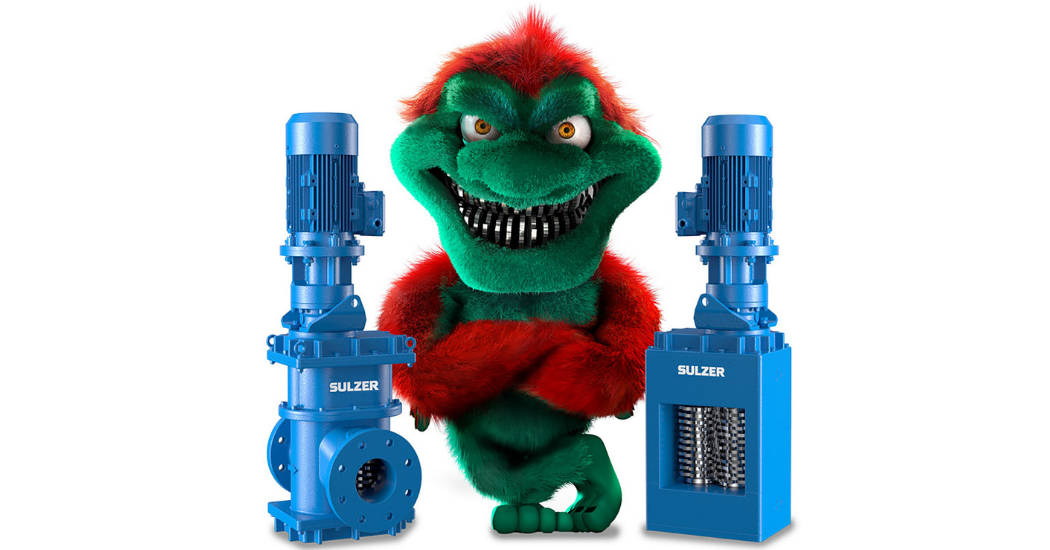
Sulzer’s Muffin Monster™ range are the best dual shaft grinders available in the market, generating the high torque required to grind difficult and large solids.
Tough, unpredictable environment
In searching for a way to mitigate that risk, the hospital’s building management team contacted Sulzer Australia. Working with QMax Pumping Systems, Sulzer’s local channel partner in Sydney, Sulzer wastewater specialists evaluated the customer’s needs and developed a solution using Sulzer’s proven Muffin Monster dual shaft sewage grinders.
The layout of the hospital’s facilities and its operating regime presented several engineering challenges for the installation of the new grinders. Daniel Pridham, Sales Director at QMax Pumping Systems, explains: “One challenge was the location. The 100 mm diameter pipes exiting the washdown facility travel across the ceiling of a plant room under the wards, with limited space for additional equipment. Another was the harsh chemicals used to disinfect contaminated equipment. Sodium hypochlorite solutions are powerful oxidizing agents that can corrode common pump materials such as ductile iron.”
Finally, the hospital needed a control system that would automatically run the grinders only when needed, shutting them down when the washdown facility was not in use to reduce wear and energy consumption. Sulzer supplied three of its 10K Series Muffin Monster Grinders, built to the hospital’s specification. Q-Max added site specific controller along with timely installation and commissioning. The grinders have now been operating for more than a year without any problems, helping to ensure the continued effective operation of the wards’ washdown facilities.
Solution for every hospital in Australia and New Zealand
As healthcare facilities around the world continue to face rising demand and pressure to keep costs under control, the reliability of key infrastructure has never been more critical. Sulzer Muffin Monster Grinders are being installed in hospitals across the UK, Europe and worldwide, providing highly efficacious treatment for troublesome wastewater problems.
Sulzer Australia stocks pre-engineered grinders in Brisbane and uses a network of established channel partners to install these at any location or facility. “This is a comprehensive offering for end-users, with Sulzer manufacturing and supplying quality products with process and warranty support to local channel partners who tailor every installation to suit specific customer requirements,” says Rajeev Seth, Sales Manager Pacific – Channel Partners at Sulzer Australia.
About Sulzer:
Sulzer is a global leader in fluid engineering. We specialize in pumping, agitation, mixing, separation and application technologies for fluids of all types. Our customers benefit from our commitment to innovation, performance and quality and from our responsive network of 180 world-class production facilities and service centers across the globe. Sulzer has been headquartered in Winterthur, Switzerland, since 1834. In 2020, our 15’000 employees delivered revenues of CHF 3.3 billion. Our shares are traded on the SIX Swiss Exchange (SIX: SUN). www.sulzer.com Our shares are traded on the SIX Swiss Exchange (SIX: SUN). www.sulzer.com. The Pumps Equipment division specializes in pumping solutions specifically engineered for the processes of our customers. We provide pumps, agitators, compressors, grinders and screens developed through intensive research and development in fluid dynamics and advanced materials. We are a market leader in pumping solutions for water, oil and gas, power, chemicals and most industrial segments.


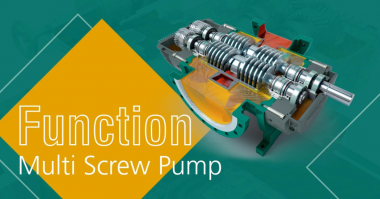
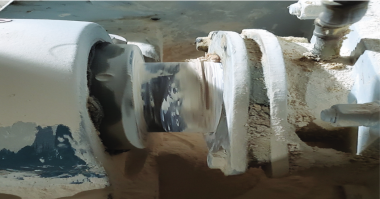
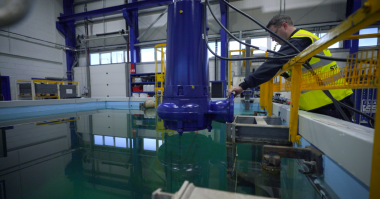
Comments